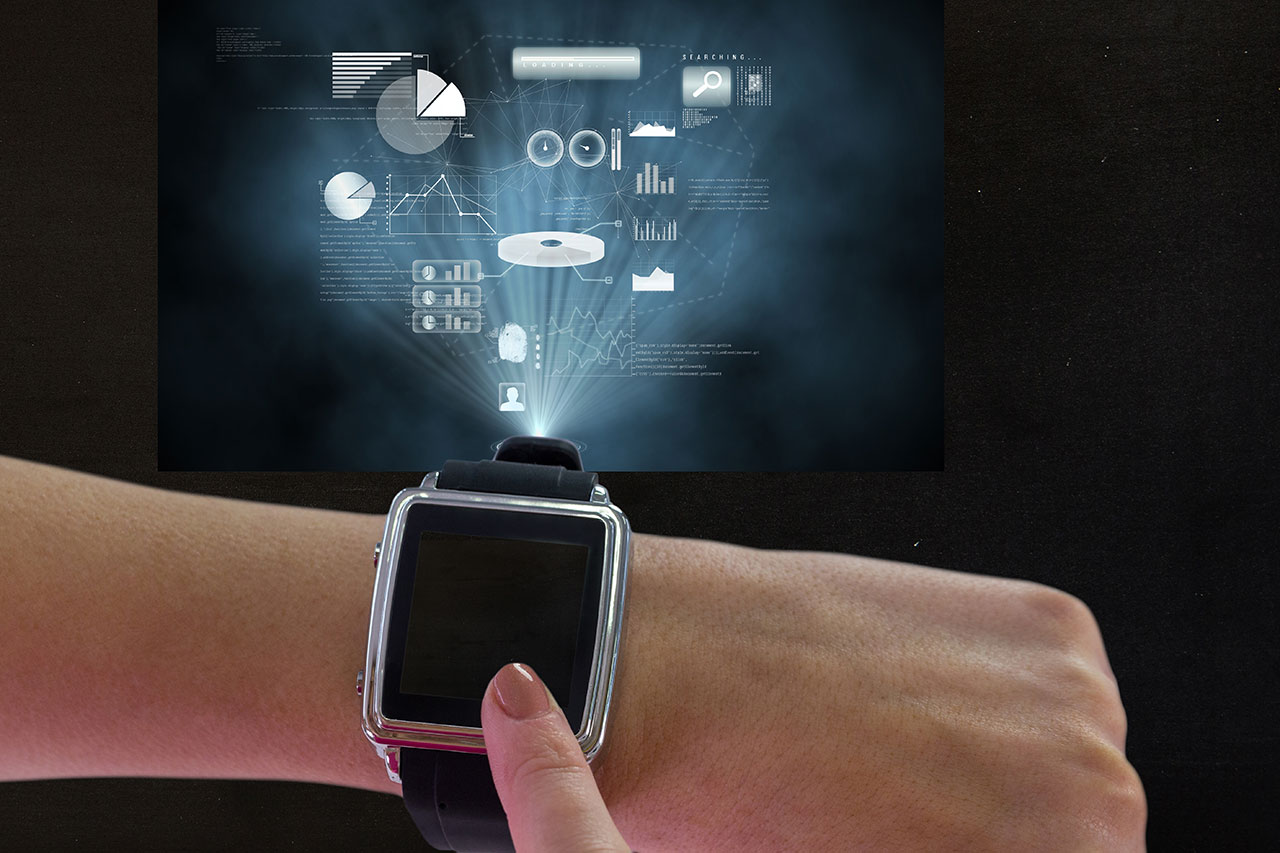According to a new study in the journal PLoS One, in the not-too-distant future wearable devices could track your health in real time by measuring gases produced by your skin.
At present, most wearable fitness devices use electrical signals to measure the chemicals produced as you sweat. One major downside to this is that these sensors tend to need large amounts of perspiration to give an accurate reading.
The new study, involving researchers from Ohio State University, suggests that this won’t be a problem for the next generation of wearables, however.
“It is completely non-invasive, and completely passive on the behalf of the user,” says lead author Anthony Annerino, a graduate student in materials science and engineering, in a university release.

New wearable tech: measuring skin gases
While the current generation of wearable devices can measure pulse rates and temperatures, the authors believe new devices would sense for biomarkers related to metabolic disorders such as heart disease and diabetes.
“Discerning health issues through the skin is really the ultimate frontier,” explains study co-author and professor of materials science and engineering Pelagia-Iren Gouma.
“The project still has a couple of years to go. But in six months, we should have proof of concept and in a year, we’d like to have it tested in people.”
The research team wants their final product to be a small device capable of fitting around the ear or on the fingernails, both areas where there’s much less sweat in comparison to the arms or chest.
“We are developing a new generation of skin sensors, and it will really be the new norm,” Gouma continues.
Sensors which examine the gases we breath out far from new. Police officers regularly use breathalyzer tests to screen for drunk drivers, and have done so for decades. However, the researchers note that these tests only provide a “snapshot” of what’s going on in the body, rather than ongoing measurements.
Lead author Annerino says that the new sensor his team are working on can measure very small quantities of gaseous acetone leaving the skin. Acetone can reveal all sorts of things about the human body and a person’s health. For example, acetone levels in your breath have a connection to blood sugar levels and even fat-burning rates.
“This is an area of research that hasn’t been nearly as well developed yet, because we’re just now producing the technology to measure lower concentrations of these gases with high selectivity,” Annerino explains.
Cell phone radiation may be causing spike in Alzheimer’s cases – shocking research

Cell phone radiation has long been suspected of having negative effects on the body, and especially the brain. Now a new study, published in Current Alzheimer Research, has shown a worrying link between exposure to cell phone radiation and Alzheimer’s. Other forms of radiation, including wi-fi, are also implicated.
The study suggests that excessive exposure leads to increased levels of intracellular calcium in the brain, a key feature of Alzheimer’s disease. The terrifying disease affects roughly six million Americans today and some estimates suggest that number will triple by 2050.
Click here to read more about this worrying new research
To create sensors for these chemicals, the researchers created a film material using derivatives of plant cellulose and electroactive polymers. The material bends in response to how much acetone the device detects in the environment.
To calibrate the material, researchers placed the film over various solutions containing alcohol, acetone, and water to assess its sensitivity, selectivity, and ability to accurately detect chemicals .
“We found significant bias toward bending more upon exposure to certain chemicals over others,” Annerino reports. “Not every research study has an obvious impact on society and people’s lives, but that’s something that this project in particular really has.”
The researchers add that the next generation wearable may also be able to detect ethanol levels leaving the skin — a key marker that warns of liver disease.

Don’t hesitate to email us at [email protected] for personalized coaching and a client questionnaire if you’d like DEDICATED tailor-made personal training on strength training, building muscle, losing fat, developing athleticism, and more — all to your liking, lifestyle, habits, and taste!
Otherwise, don’t forget to claim your FREE eBook detailing how to lose 20lb of fat while building muscle in 12 weeks! You can claim it here.
Alternatively, you can pick up a FREE eBook on fundamental strength principles offering an introductory workout program.











